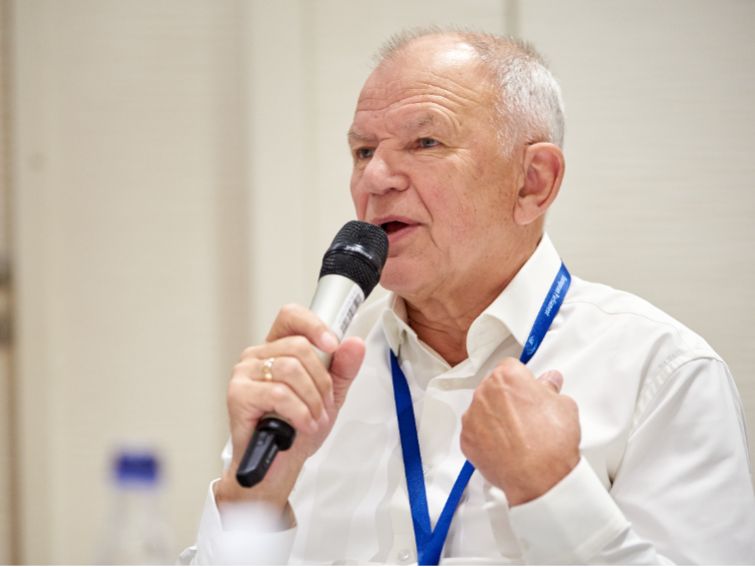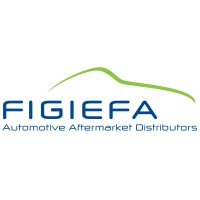This is what emerged from The Parliament’s EU Presidency Outlook– an event part of its exclusive members’ series where leading figures in European and international politics provide their insights and expertise.
Convening in the European Parliament in Brussels on July 17th, stakeholders from across institutions and industry discussed the need to strengthen the EU’s security framework, reinforce competitiveness, and ensure that climate and industrial goals are pursued jointly. At the heart of this consensus lies a commitment to affordability, smart regulation, and implementation coherence, which are essential components for translating policy ambition into real-world progress.
“Trade, competitiveness, energy, migration—these are all security issues.”
Danish host MEP Niels Fuglsang (S&D) opened the event by urging Europe to embrace a new era of autonomy and maturity. Drawing on a striking metaphor, he said, “I do not know what scenario best describes Europe today, but I know it’s time for Europe to stand for itself.” He welcomed the Danish Presidency’s focus on security and called for decisive investments by stating that “Trade, competitiveness, energy, migration—these are all security issues.” From energy and digital infrastructure to industrial strength and climate policy, all these dimensions should be understood as pieces of a bigger puzzle: “Security is more than military spending”, he declared.
 Mathias Kirkegaard, Environment attaché at the Danish Permanent Representation, outlined the Presidency’s official priorities.
Mathias Kirkegaard, Environment attaché at the Danish Permanent Representation, outlined the Presidency’s official priorities.
Mathias Kirkegaard, Environment attaché at the Danish Permanent Representation, outlined the Presidency’s official priorities: ‘A safe Europe’ and ‘A green and competitive Europe,’ aimed at combining intelligently the Green Deal and the Clean Industrial Deal, through simplification and harmonisation rather than deregulation. Echoing that sentiment, multiple interventions from the public addressed the risks of legislative complexity at national level and called for more effective implementation of EU rules.
Additional insights from the Danish Presidency as well as MEPs Marc Angel (S&D, Luxembourg), Cynthia Ní Mhurchú (Renew, Ireland) from the centrist coalition reinforced this direction: the importance of aligning the Green Deal and the Clean Industrial Deal through a pragmatic and business-friendly lens was repeatedly emphasised, with a focus on implementation rather than legislative overhaul. MEP Vytenis Andriukaitis (S&D, Lithuania), a former European Commissioner, also highlighted the need to streamline EU rules across Member States, while avoiding the risks of deregulation, and the urge to approach the 2040 climate target negotiations with realism and transparency, and to further integrate circular economy principles within competitiveness frameworks.
Sources from the upcoming Cypriot Presidency underlined the growing expectations on sustainable transport and cross-border connectivity, with a perspective hinted at strong continuity in the European agenda for green competitiveness and infrastructure modernisation. The Cypriot Presidency is also anticipated to advance work on maritime policy, port infrastructure and strategies to ensure fair connectivity across all Member States, aiming at improving the integration of peripheral regions into the EU’s transport and energy infrastructure networks, as to foster the development of more sustainable and interconnected transport systems and the enhancement of cross-border infrastructure under the TEN-T framework.
 MEP Vytenis Andriukaitis (S&D, Lithuania), a former European Commissioner, warned that the fragmentation of national regulations could undermine the EU’s credibility.
MEP Vytenis Andriukaitis (S&D, Lithuania), a former European Commissioner, warned that the fragmentation of national regulations could undermine the EU’s credibility.
Throughout the exchanges, the importance of ensuring that the EU’s policy ambitions translate into tangible and coherent action on the ground was stressed by MEP Vytenis Andriukaitis who warned that the complexity and fragmentation of national regulations could significantly undermine the EU’s competitiveness and credibility if left unaddressed, arguing that while simplification was welcome, it must not be confused with deregulation, as a coherent internal market requires common standards and mutual trust in their implementation.
“The green transition must ensure vehicles remain affordable for citizens.”
Affordability was also a recurring theme, as participants stressed that Europe's green and digital transitions would only be successful if citizens and businesses could afford to engage with them. This view was strongly supported by Mads Engberg, President of FIGIEFA, the association of European automotive aftermarket distributors. “Our sector contributes to key goals of the EU: the green transition, European competitiveness and affordable mobility”, Engberg stated, adding that the automotive aftermarket plays a crucial role in maintaining Europe’s 280 million vehicles throughout their lifespan and in supporting the green transition’s social dimension: “The green transition must ensure (that) vehicles remain affordable for citizens.”
Access to data and digital functions was also recognised as a cross-cutting issue essential to ensuring innovation, competition, and consumer trust in the evolving mobility ecosystem. “Fair access to real-time data and functions is the basis so that the automotive sector remains competitive and innovative in the digital age,” added Engberg, echoing wider calls from the event to reduce fragmentation and ensure that digitalisation supports, rather than restricts, open and fair markets. He stressed that competitiveness should not be viewed solely through the lens of vehicle manufacturers, but rather through the whole automotive value chain which underpins Europe’s economic resilience and industrial sovereignty. Engberg’s remarks underscored the importance of securing sector-specific rules to preserve fair competition between vehicle manufacturers and independent operators. In this context, support for legislative proposals such as the Motor Vehicles Block Exemption Regulation or the End-of-Life Vehicles Regulation was seen as a vital step toward a more inclusive and sustainable mobility ecosystem.
Throughout the discussion, both institutional and industry voices aligned around the idea that competitiveness and sustainability must be pursued together and not seen as contradictory forces. Speakers consensually called for a model of economic transformation that places environmental ambition and industrial resilience on an equal footing, anchored in realism, social fairness and regulatory coherence.
As the EU prepares to negotiate its climate targets for 2040, many policymakers highlighted Europe’s growing ambition to lead with purpose by calling for the Danish Presidency to aim at securing strategic autonomy and to aligning sustainability with competitiveness. The Danish Presidency priorities will guide the EU through a pivotal phase, with the aim to ensuring smarter regulation, investment in resilience, and practical cooperation between institutions and Member States to delivering a stronger and more cohesive Europe.
This event was organised in collaboration with:

Sign up to The Parliament's weekly newsletter
Every Friday our editorial team goes behind the headlines to offer insight and analysis on the key stories driving the EU agenda. Subscribe for free here.